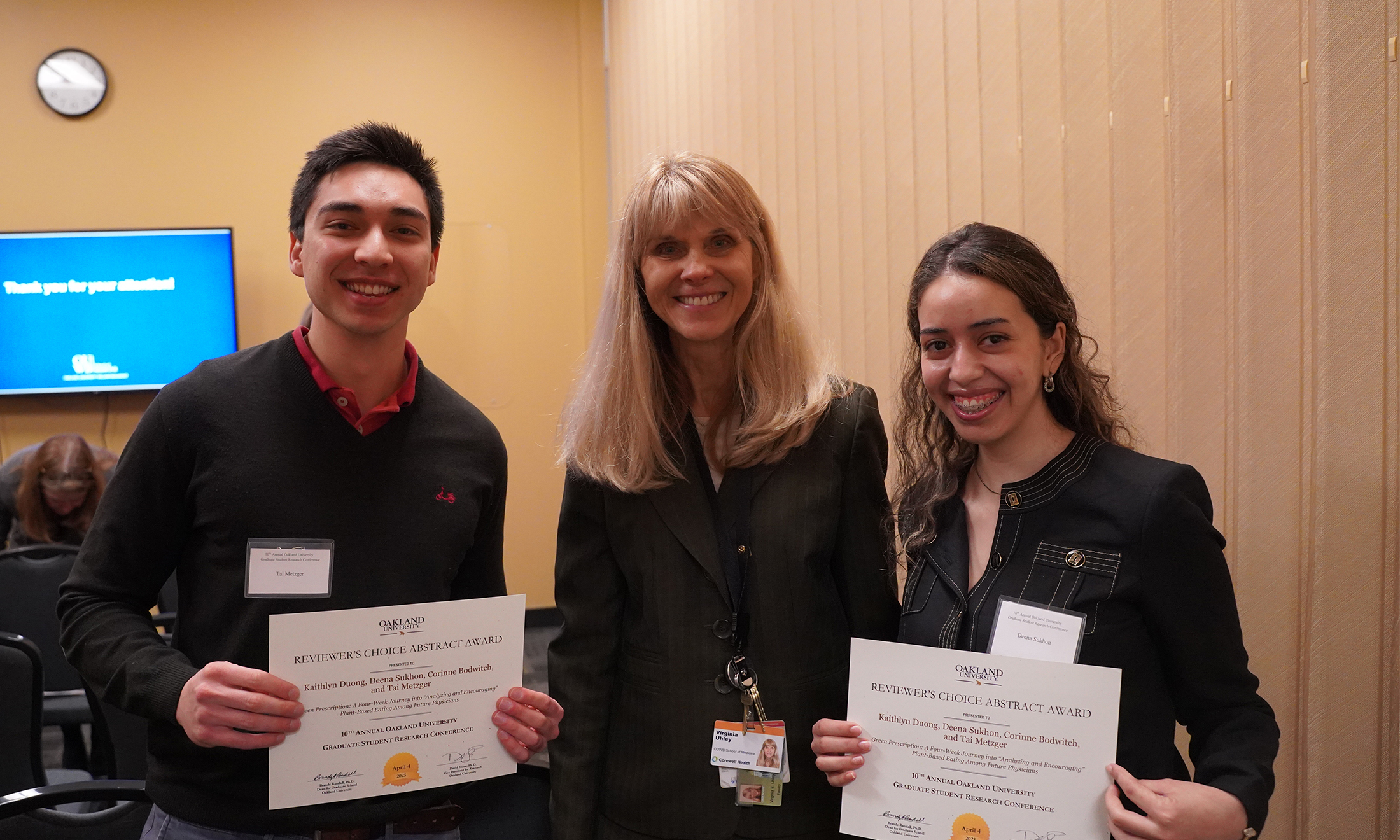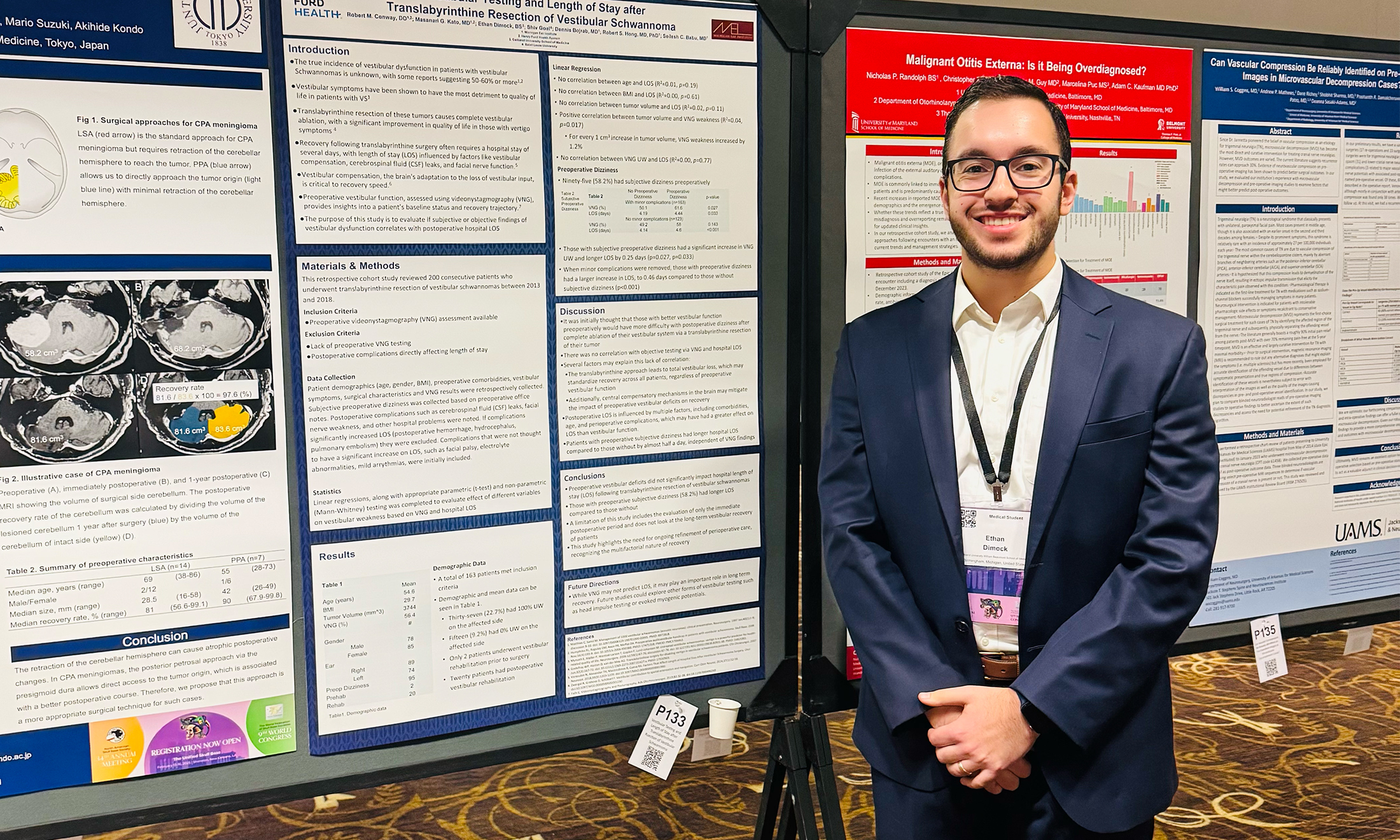Divorce = COVID-19?
New study led by OUWB student suggests link between marital status, COVID-19 deaths
Divorce has been a common — and underreported — factor among older individuals who died because of COVID-19, finds a new study published by a cohort of researchers with ties to OUWB.
“Healthcare Disparities Correlated with In-Hospital Mortality in COVID-19 Patients” recently was published in International Journal of General Medicine.
The study sought to identify health care disparities associated with increased mortality in COVID-19 patients. It was based on aggregate data from 11,304 patients hospitalized with COVID-19 between February and December 2020.
The novel study is the first to report mortality disparities associated with marital status.
“Marital status hadn’t really been studied before,” said Rachel Harvey, a fourth-year OUWB student and lead author.
“We found a relationship between marital status…that hadn’t previously been described.”
Co-authors on the study were Maryam Hermez, M3, OUWB; Luke Schanz, M.D.; Department of Internal Medicine, Beaumont; Patrick Karabon, former OUWB biostatistician; Tracy Wunderlich-Barillas, Ph.D., director of research training, OUWB; and Alexandra Halalau, M.D., associate professor, Department of Internal Medicine, Beaumont.
Like other studies have reported, the researchers found in-hospital mortality was “significantly associated” with people who were older, male, and/or disabled. The study reported its findings were “consistent with current literature suggesting that elderly individuals and males tend to have higher risk of severe infection, hospitalizations, and mortality related to COVID-19.” Similar findings were associated in people with disabilities.
Further, the study found “no significant association” between race alone and in-hospital mortality in COVID-19 patients, “which differs from previous report findings.” It notes the many factors — such as increased housing density, or limited access to health care — that have been hypothesized to explain the racial disparity seen in COVID-19.
“This lack of disparity in our study potentially highlights the true underlying driver of increased mortality, disproportionate rates of comorbidities and socioeconomic disadvantages in minority groups, rather than race itself,” states the study’s authors.
| More from OUWB |
|
Study led by OUWB student identifies need for more women, minority anesthesiology residents OUWB student research finds med school interest groups need more diversity in leadership |
Harvey says the primary difference between the study she led and others is that it considers marital status.
It found that nearly 12 percent of those in the study who died as a result of COVID-19 were divorced. Harvey said it’s important to note that the study doesn’t show causation — only correlation. In other words, the study is unable to conclusively determine exactly why those who were divorced were likely to have worse outcomes.
“If I had to hypothesize, I would say that having somebody, or a companion, in the home during the pandemic was probably associated with better outcomes,” said Harvey.
Still, identifying the group in such a novel way could go a long way, both in studying COVID-19 further and in treating patients.
“It’s important to understand these themes so we can either do further studies to look back and try to understand why this is the case,” said Harvey. “Or because we know these groups are higher risk, maybe we should target these populations with vaccine campaigns or other preventative measures.”

 December 21, 2021
December 21, 2021
 By Andrew Dietderich
By Andrew Dietderich









